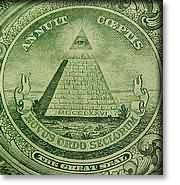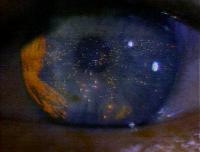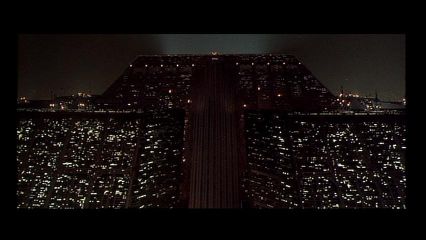Blade Runner (1982). Directed by Ridley Scott. Starring Harrison Ford (Deckard), Sean Young (Rachel), Daryl Hannah (Pris), and a BRILLIANT performance by Rutger Hauer (Batty).
So, this is a cult classic I decided to watch after reading some of what Jurgen Muller’s book (Films of the 80s) had to say about it. Blade Runner is featured prominently in the book. I was intrigued by the visuals and the philosophical aspects. For the record, I haven’t read Do Androids Dream of Electric Sheep? by Philip K. Dick, upon which the movie is based, but I’m sure it would have enhanced the experience.
All right.
So, this is a cult classic I decided to watch after reading some of what Jurgen Muller’s book (Films of the 80s) had to say about it. Blade Runner is featured prominently in the book. I was intrigued by the visuals and the philosophical aspects. For the record, I haven’t read Do Androids Dream of Electric Sheep? by Philip K. Dick, upon which the movie is based, but I’m sure it would have enhanced the experience.
All right.
At the risk of sounding like a ditz…
!!OHMIGOSH, I would have to watch this film, like, 84 more times in order to catch everything!!
I mean, in order for me to thoroughly appreciate, understand, and conclude anything definitively, I’d have to watch it at least a few more times. HOWEVER, even after the first time, my head is spinning with ideas. Oh, fun! But my response to the film was not entirely positive.
First, though it was obviously way ahead of its time, today it looks dated. It looks like an 80s movie, mainly because of the vehicles. But the film is visually impressive. I don’t think Peter Jackson’s computer-created 'wide angle shots' of Mordor are that much more impressive than Ridley Scott’s 'wide shots' of Los Angeles in 2019. The sets are impressive, though some of the machinery look plastic and cheap, but that’s okay. The physical world can be disappointing. But we’ll get to that later.
My suggestion to Ridley Scott if he ever decided to “update” it (I can hear the purists gasping and frantically groping for their inhalers…kidding!) he would have to chuck most of the synthesizer music and score the film with an actual orchestra. This is a real problem for so many of these classic 80s films. Over time, synth music has become heavily associated with TV show music, e.g. Doogie Howser. Nintendo, too. It’s not effective, dramatically. (When Star Trek: The Next Generation aired in the late 80s and early 90s, its orchestral score contributed heavily to its polished, theatrical feel, and it still holds up despite some of the now-cheesy set decor. No, I don’t have my own inhaler.)
I rented the director’s cut, which apparently includes more about Deckard’s status as the very thing he is commissioned to hunt down and kill: androids, or “replicants.”
Themes in the movie: Descartes, fours, grids, squares, eyes, Asians, unicorns (the last two were facetious…but they mean something, I just know it!)
The opening shots feature a huge eye and a pyramid, separate shots, but together they are reminiscent of the novus ordo seclorum, or “new order of the ages” idiom on our dollar bills, which can be translated as “a new world order” (I took Latin for three years in high school a gajillion years ago and that is one thing I remember).

!!OHMIGOSH, I would have to watch this film, like, 84 more times in order to catch everything!!
I mean, in order for me to thoroughly appreciate, understand, and conclude anything definitively, I’d have to watch it at least a few more times. HOWEVER, even after the first time, my head is spinning with ideas. Oh, fun! But my response to the film was not entirely positive.
First, though it was obviously way ahead of its time, today it looks dated. It looks like an 80s movie, mainly because of the vehicles. But the film is visually impressive. I don’t think Peter Jackson’s computer-created 'wide angle shots' of Mordor are that much more impressive than Ridley Scott’s 'wide shots' of Los Angeles in 2019. The sets are impressive, though some of the machinery look plastic and cheap, but that’s okay. The physical world can be disappointing. But we’ll get to that later.
My suggestion to Ridley Scott if he ever decided to “update” it (I can hear the purists gasping and frantically groping for their inhalers…kidding!) he would have to chuck most of the synthesizer music and score the film with an actual orchestra. This is a real problem for so many of these classic 80s films. Over time, synth music has become heavily associated with TV show music, e.g. Doogie Howser. Nintendo, too. It’s not effective, dramatically. (When Star Trek: The Next Generation aired in the late 80s and early 90s, its orchestral score contributed heavily to its polished, theatrical feel, and it still holds up despite some of the now-cheesy set decor. No, I don’t have my own inhaler.)
I rented the director’s cut, which apparently includes more about Deckard’s status as the very thing he is commissioned to hunt down and kill: androids, or “replicants.”
Themes in the movie: Descartes, fours, grids, squares, eyes, Asians, unicorns (the last two were facetious…but they mean something, I just know it!)
The opening shots feature a huge eye and a pyramid, separate shots, but together they are reminiscent of the novus ordo seclorum, or “new order of the ages” idiom on our dollar bills, which can be translated as “a new world order” (I took Latin for three years in high school a gajillion years ago and that is one thing I remember).

(Sorry, I tried to center that eye above the pyramid. I didn't work. But, you get the point.)
This new world is an L.A. that is—on the ground—gloomy, crowded, wet, claustrophobic, dark, squalid and thoroughly infiltrated and dominated by….ASIANS AND ASIAN CULTURE!! Yes, those rat bastards have taken over our precious City of Dreams. See, we saw it coming!! Now, look. See what happened?*
*Now, BEING OF ASIAN DESCENT MYSELF, I couldn’t help but take notice, and offense, to the portrayal of Asians in this film. On one hand, anti-racist messages can be extracted from the story. On the other hand, this was the 80s, and America’s paranoia about Asia’s economic rise and impending dominance threatened America’s identity as numero uno. The multicultural urban jungle in Blade Runner seems to reflect the xenophobic paranoia of turn-of-the-century America (late 19th and early 20th century) when immigrants were pouring to America’s cities, and also late 20th and early 21st century America, as the immigration issue heats up again. So, in L.A. in 2019, most of the well-to-do are on luxurious off-world sites; but the minorities, white authority figures, and a few physically defective white humans have been left behind on the ground??! Also, I wonder about Pris and Batty, 'Aryan' as they are, and how they are referred to as “perfect” [particularly Batty, who looks healthier than Pris and is a higher-level replicant...I think] despite their status as slaves. I know “perfect” means that they have no defects, except their short life spans. They don’t need glasses, for instance. But, if we go with the idea that their looks are supposed to enhance that perception of perfection for the audience, maybe their fit Aryan perfect-ness is supposed to drive up the audience’s empathy for them and their plight. Or, maybe it was a way for a majority white audience to identify with the characters, to drive point of the inhumanity of slavery, regardless of race.
I don’t know. So many mixed messages in this film!
Following the pattern of 80s films, it could boil down to American integrity and freedom, regardless of race, versus foreign takeover and the loss of American paradise, as told in Die Hard.
I found it interesting that the genetic designer also has a short life span.
I found it interesting that the genetic designer also has a short life span.
A couple of quick notes. . .
EYES: The replicants’ pupils look like camera lenses, including the owl’s eyes. Tyrell wears HUGE, thick, SQUARE GLASSES. Gaff has ice blue, striking eyes. Lots of eye close-ups throughout. The replicants’ eyes are designed by a caricatured Asian fellow; I’m not sure what that means yet.
I wonder if the emphasis on the eyes simply reminds us that they are windows to the soul and, yes, the replicants have these windows as well; i.e., since films are visual, they are a way to express that replicants have souls. It could be that the eyes represent wisdom or an omniscient God(?). Or it could be our collective unconscious, absorbing what we fear our world will become.
On the other hand, eyes are sensory and gather external, physical information.
OK, I will attempt to delve into what I gathered from a philosophical angle. I’m not a philosophy major, so forgive me if I am butchering any of this. Keeping in mind Descartes' internalist theories (http://en.wikipedia.org/wiki/Descartes), perhaps the eyes symbolize the physically observed world, or sensory perception, juxtaposed against the Cartesian ideas of the perceptions of self that exist in one’s mind. According to Descartes, what is in the mind determines existence, not what is observed through the senses. What I gather is that the replicants have the capacity to think and feel as humans do, and indeed Batty and Pris do. They are sensitive, sentient beings. But they are not human; they are artificially created life forms. A funny Asian guy designed their eyes, for goodness sake! While the eyes might be remarkably efficient (perhaps even fuel efficient!) they were crafted by Asian hands nonetheless, which I guess to a white, American audience might underline the notion of artifice, cold-calculation (notice the freezing lab), and mass-production; ergo, the replicants' physical makeup do not determine their value and dignity…what determines that is that they are sentient beings! For example, Pris quotes Descartes' I think; therefore, I am. And Rachael is alive, and her memories, though not entirely hers, are part of her consciousness and part of who she is. She has emotional ties to those memories.
Here is an exchange (not verbatim) between Rachel and Deckard:
Rachel, at the piano: “I remember lessons…don’t know if it was me, or Tyrell’s niece.”
Deckard: “You play beautifully.”
This to me illustrates Descartes’ notion of reality as fully cognitive; reality is what you make it. A romantic notion, in the literary sense. That is, it’s a mode of thinking suitable for romantics.
Oh, the intimate scene between Deckard and Rachel when he kisses her grossed me out. It was forceful AND she looked unhappy AND the saxophone music made the entire scene soooo limburger. Anyway, if we accept that they are both replicants we can see that they are both grasping for feeling. Or, he is and is forcing her to play along. And, miraculously, she ends up loving him. YUCK. Not a good message for you young guys out there.
I’m not going to go into the sexism issue in this film. It just hit me, though: Batty represents physical “perfection,” and Pris probably does, too, up to a point (before she gets super pale and paints a mask on her face—hey, another eye thing!). But, she’s female, so no dice. Also, the “evil” female replicant was a dirty whore of an exotic dancer! She is the first to be aggressively hunted and destroyed by Deckard. And, of course, Rachel, Deckard’s girl, is demure and fragile, even though she could probably snap his neck like a twig—unless, of course he’s a replicant, too, which we don't know for sure.
There were grid patterns throughout the film, recalling the Cartesian plane/coordinate system. In the kissing scene, a grid is hard against the back of Rachel’s head, emphasizing her artificial physical quality… or maybe reminding us of her dignity as a sentient, just-as-good-as-human being in terms of Descartes (she thinks, therefore she is). A shadow of the same grid covers Deckard’s face as well.
The white unicorn in Deckard’s mind is just as real, or even more real, than his surroundings. The memory of the unicorn is a clue that Deckard himself may be a replicant. The ending, where he finds the silver paper unicorn left by Gaff confirmed this to me and had me wondering whether or not Gaff was one, too, because he had such distinctive eyes. (Or were his blue eyes a means to separate him from the rest of the Asians? His eyes seemed to get bluer as we figure out that he’s a good guy. Or maybe I just realized that his eyes were blue later on in the film.)
I will cut the movie analysis short, but I took tons of notes watching this movie. I would like to watch it again. Yes, some things about it were disappointing. I can’t help looking at it from a sociological-racial perspective; that is a major aspect of this film. I am just fed up with and refuse to accept false, spoon-fed notions of blond perfection and the portrayal of non-white, “other” races as something other than American in America. I grew up watching lots of TV and movies during the 80s just accepting it and kind of believing it subconsciously, until I realized that it was bullcrap, being that I myself am a non-white, native-born American, who is no less American than someone who would be labeled “all-American.” It’s so easy to buy into that idea, and it has to be that much more automatic if you ARE a white American. These issues are touchy, but they are okay to talk about in a civil way. It’s healthy to talk about things. I’ve had many fascinating discussions about all this stuff with my white husband, who grew up in the south in a traditional Baptist family… and, yes, we actually love each other, A LOT! Because, ultimately, we're way more similar than different (my husband and I have such similar temperatments and likes and dislikes, it's freaky, considering that we grew up in such different environments). And THAT'S the beauty of talking about these types of issues. It gets everything out on the table so everyone understands everyone else; then, people can focus on what really matters, which is the internal.
Having said all that, believe it or not, I do appreciate the film and realize that there are MANY other aspects to it, and many ways of looking at it, and I believe that the film ultimately advocates the dignity of life. I would love to be able to explore Blade Runner and its many dimensions more thoroughly. A couple of the fafillion million gajillion questions I have: Why does Batty spare Deckard; is it because he empathizes with Deckard because he knows that Deckard is a replicant and will die soon anyway? And, what is the significance of Deckard’s apartment number 9732? I’m a math dummy, but it seems like a familiar number somehow. (Anyone?... Anyone?...)
If you are alive and like to think, definitely watch this film and judge it for yourself. I'm so glad I did. Now, I think I need a nap.


2 comments:
Rock on--you completely nailed the nature of the blog.
On a completely different note: Blade Runner has been getting some play in the tabloid press because of Daryl Hannah relegating herself into a tree to rescue a farm in downtown L.A. Some very punny jokes have been done at her and the film's expense.
totally agree on the sexism thing. I didn't notice it till you pointed it out. really sad. but probably only us women feel outraged. on top of the race discrimination, you must face the sex discrimination. what a shame, after all the thousands of years we are on earth. still so primitive. this was my favorite movie. was...
Post a Comment